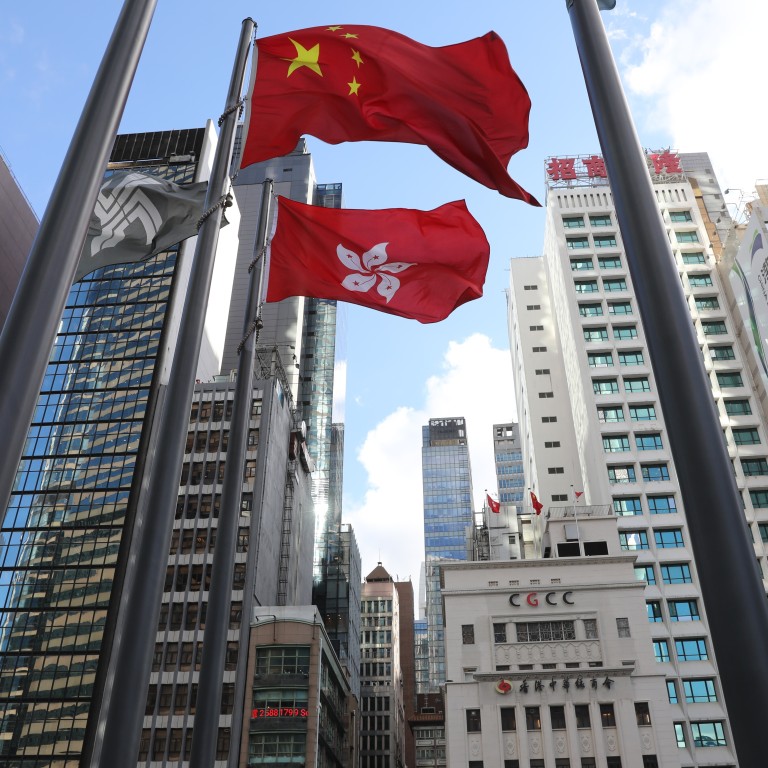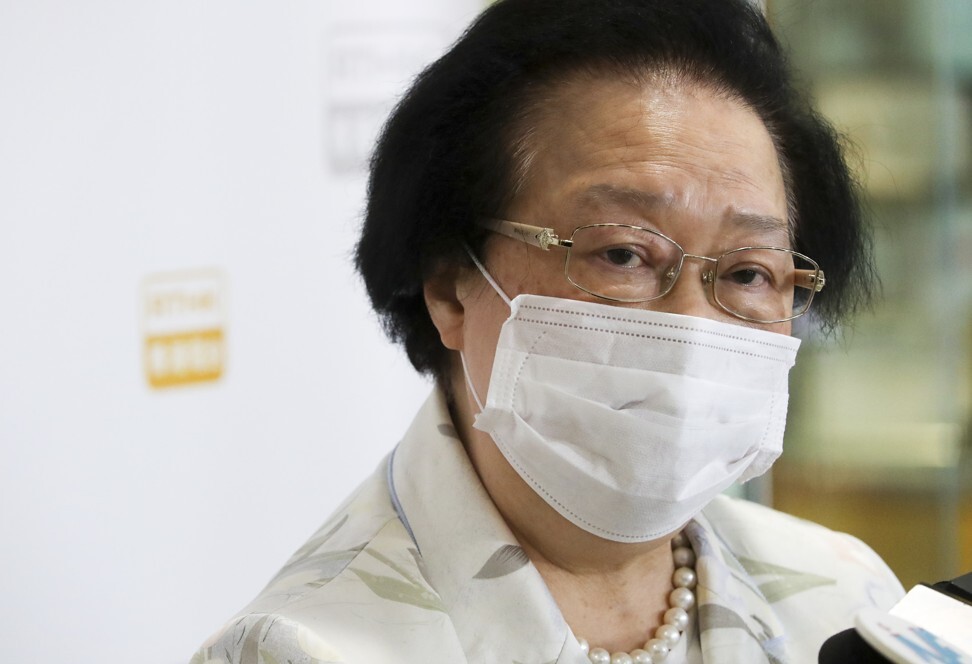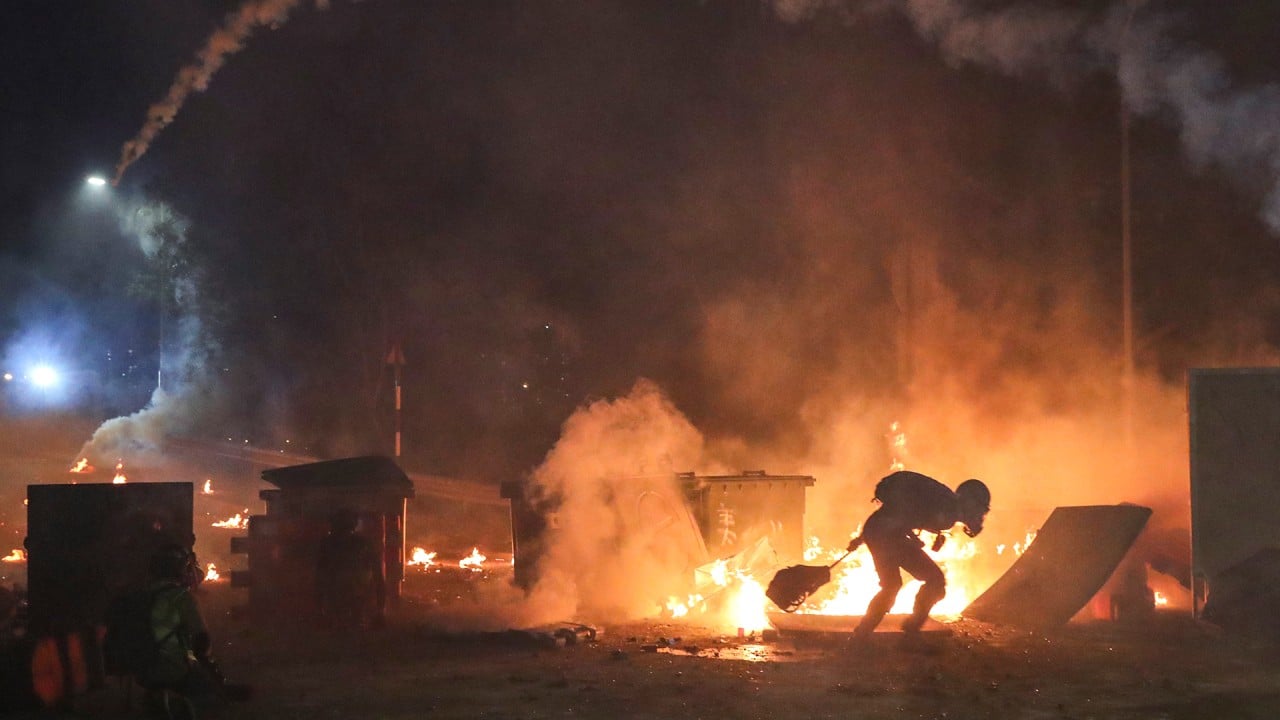
National security law: Beijing will not be deterred by opposition to legislation, Basic Law Committee vice-chairman Maria Tam says
- There can be no debate with those denying the need for the national legislation, Maria Tam says
- Activists march on foreign consulates calling for them to impose sanctions against Beijing in retaliation for security law
Basic Law Committee vice-chairman Maria Tam Wai-chu issued the warning on Friday as activists marched on foreign consulates in Hong Kong, urging G20 nations to impose sanctions on Beijing or to at least speak out against the legislation.
In a radio interview, Tam also gave the strongest indication yet that the law could be passed during a special three-day meeting of China’s top legislative body, which starts on Sunday.
While the law was yet to appear on the agenda of the National People’s Congress Standing Committee, she said as many as 10 representatives from Hong Kong had been invited, compared with the four who typically attend its regular meetings held every two months.
Former Hong Kong No 2 official Anson Chan retires from public life
Members of the Basic Law Committee, which sits under the NPCSC and advises on the interpretation of the city’s mini-constitution, would also be present, she added.
The law aims to prevent, stop and punish acts of secession, subversion, terrorism and collusion with foreign forces to endanger national security. It has sparked widespread concern over the potential impact on the city’s freedoms, despite repeated reassurances from officials it would target only a minority of lawbreakers.
When quizzed on whether Beijing had consulted a diverse range of opinions for the bill, Tam on Friday said the views of those who did not accept the fundamental grounds for the law were irrelevant.
“If those people are opposing [the whole law] in principle, there is nothing left to discuss,” said Tam, adding that Beijing’s liaison office in Hong Kong had already consulted influential businessmen, lawyers and politicians in a two-day session this week.

Expecting a draft law tough enough to effectively curb the city’s “current problems”, Tam said there would be no point in Beijing pursuing the legislation if it was merely a “toothless tiger”.
The central government was relying only on legal means to “put things back on track” and would never resort to “using guns”, she added.
No reason to keep Hong Kong national security law draft secret: legal experts
Tam shrugged off suggestions that the law, which would allow Beijing to exercise jurisdiction over exceptional cases, undermined the rule of law in Hong Kong.
She said the jurisdiction for national security cases had always rested with Beijing, just as a Spanish court was assigned to try pro-independence politicians and activists from its semi-autonomous region of Catalonia on charges of sedition.
Also on Friday, 12 trade unions, which were established during the anti-government movement that emerged last summer, handed in petitions to foreign consulates of G20 nations.
They urged the countries to put pressure, and even impose sanctions, on Beijing to withdraw its plans for the national security law.

07:11
Rebel City: SCMP journalists reflect on a year of covering Hong Kong’s civil unrest
Splitting into three groups, the protesters marched to consulates, including those representing the United States, Britain, Germany, Japan and France, to hand over petition letters.
“We urge your government to stand with Hong Kong in its fight for freedom and democracy by pressuring the CCP [Chinese Communist Party] government to halt the unilateral legislation and implementation of the national security law,” the petition wrote.
It said that could be achieved “through actions such as trade sanctions, asset freezes against the Chinese officials involved, and termination of the special status and privileges Hong Kong currently enjoys in international trade as the ultimatum”.
Security law won’t scare off foreign visitors: Hong Kong Tourism Board chief
Cat Hou Chui-shan, chairwoman of the Bartenders and Mixologists Union, said all the signatories to the petition were genuine and represented the concerns of Hongkongers.
Meanwhile, the Civil Human Rights Front – the organiser of several mass marches against the now-shelved extradition bill – has announced its plan to hold the annual pro-democracy march on July 1, although police have yet to approve the event.
Civic Party lawmaker Tanya Chan, who convenes the opposition in the Legislative Council, said it was up to lawmakers to decide if they wanted to join the march, which marks the city’s 1997 handover to Chinese rule.
US Senate passes bill to punish China for Hong Kong national security law
Referring to the power of city leader Carrie Lam Cheng Yuet-ngor to select which judges could oversee security law cases, Chan sought answers over whether such prosecutions would be in open court, and whether Chinese officials would be consulted before the appointment of justices.
Chan urged the authorities to withdraw the law, or to at least publish its full text as soon as possible.
Democratic Party chairman Wu Chi-wai also said Beijing would use the new law to achieve “political needs”, such as curbing dissent in Hong Kong. “In reality, all those who criticise the regime could be punished for subverting state power,” Wu said.
He added that foreign countries that had expressed concerns over the new law could review the preferential trade treatment they had given the city.
Additional reporting by Sum Lok-kei


